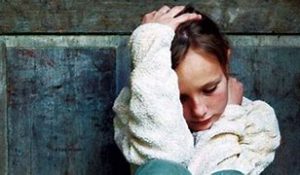So you’ve outlined your web video, have all of the information that you need and you’re ready to go out and begin filming the video that will increase traffic to your site and inform millions of people about a certain topic. However, there is only one problem. As you sit outside, or in your living room, you look through your camera’s viewfinder only to find that the lighting is off. While you see that the lighting needs help, you don’t know what to do. However, there are a couple of quick tips for lighting your web video that will give you the light you need, and get rid of the light you don’t.
If you want to have a beautifully lit web video, than you will want to engage in 3-Point Lighting. This is a great way to light any type of web video, and it also ensures you will stay away from hotspots and shadows, which can ruin a video. 3-Point Lighting stands for the three main type of lights that you will be using. These lights include Back Light, Key Light and Fill Light. It doesn’t matter what type of light you use, as long as you follow the rules that are associated with this type of lighting process. After you have followed the process of lighting your video in this manner, you will have a gorgeous outcome.
First of all, you need to understand what the Key Light is, and how you can use it. The Key Light is a light that you place in front of your main subject. Of course, you will never want to place the light directly in front of your subject, because this would ultimately wash the subject out and create unattractive shadows. When you are placing your Key Light, you will want to put it at a 30 to 45 degree angle in front of the main subject you’re shooting. Make sure that the Key Light is to the side of the camera. This light will give you perfect lighting for the subject, without washing it out.
The next light in the 3-Point Lighting concept is the Fill Light. You will place this light directly across from the Key Light, on the other side of the camera. How you know you have the Fill Light in the correct position is the light will be parallel to the Key Light, and it will soften the shadows that the Key Light has created. You must be careful in how bright the Fill Light is, because you do not want to put too much light on the subject. Normally, when you are using a Fill Light, you only use 50% of the light’s power, or you use a soft light. It is suggested that you do use a soft light instead of a spotlight, because it provides a beautiful contrast without being too bright.
The last light in the 3-Point Lighting design is the Back Light. The Back Light is exactly what it sounds like, it is lighting the back of the subject. This is very important because it will literally separate the main subject from the background by creating a nice outline of light around the rim of the main subject. You will want to place the Back Light directly behind the main subject, and also make sure that it aligns directly with the camera. Some filmmakers decide to place the Back Light above the subject; however, this can be dangerous.
Make sure that when you do this it is tied down appropriately; also make sure that the Back Light does not create awkward shadows on the main subject. This is a common mishap and can cause the subject to look sickly. The purpose of the Back Light is to allow the subject to seem three-dimensional and to also separate it from the background itself. If you want to light your background, you will need to use a separate light.














More Stories
Web Video and Businesses
The Power of Video Blogging
The Importance of Web Video in Marketing